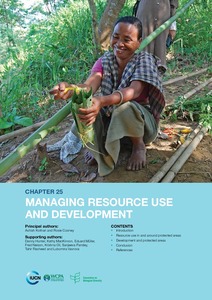Do Land Market Restrictions Hinder Structural Change in a Rural Economy?
This paper analyzes the effects of land
market restrictions on structural change from agriculture to
non-farm in a rural economy. This paper develops a
theoretical model that focuses on higher migration costs due
to restrictions on alienability, and identifies the
possibility of a reverse structural change where the share
of nonagricultural employment declines. The reverse
structural change can occur under plausible conditions: if






